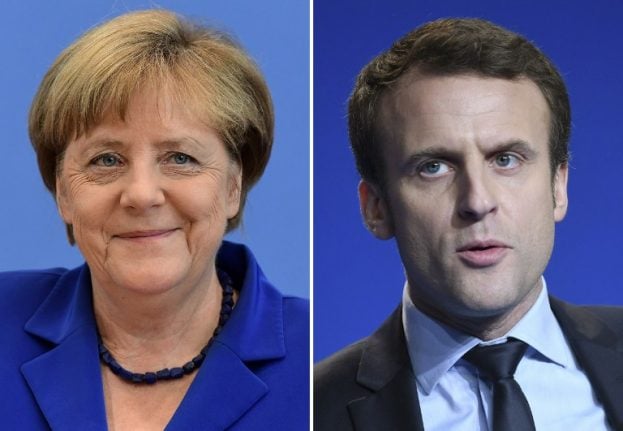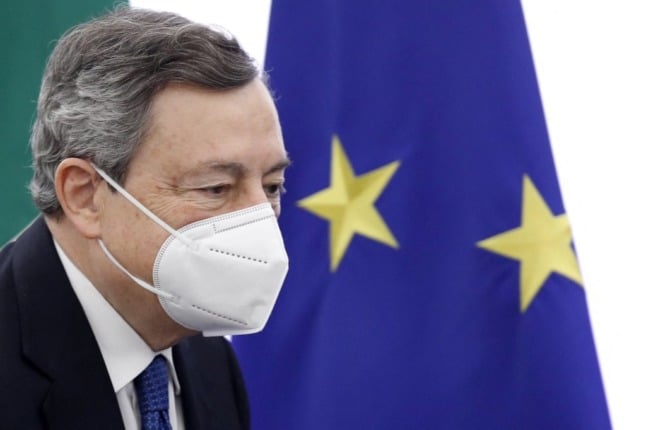Macron came to power in May promising to strengthen the institutions of the eurozone and deepen the integration of the EU bloc as it prepares for Britain's departure.
He is desperate for German Chancellor Angela Merkel's endorsement of his reform agenda, which includes plans for a new finance minister position, budget and parliament for the 19-member eurozone.
“What has been missing from the European Union these last years is a vision for the medium term,” an official in the presidency told reporters Monday in words that might nettle Merkel, who has been in power since 2005.
Macron's plans were dealt a blow this weekend by German elections which are likely to result in a new government that includes the Free Democratic Party (FDP), whose leader is an outspoken critic of Macron's European agenda.
Undeterred, Macron will use the speech at the Sorbonne university Tuesday to argue the case for institutional changes, initiatives to promote the EU publicly, and new ventures in the technology, defence and energy sectors.
Macron's aides have been keen to play up his role as a driver of change in the EU, which he has promised to “rebuild” in order to draw the sting out of eurosceptic parties on the continent.
Cooperation from Germany — the other half of the so-called “Franco-German motor” at the heart of the bloc — is essential, though Macron will also need to convince other European partners.
Over the next few months, analysts say they expect Merkel will try to form a coalition led by her conservative CDU/CSU with the pro-business FDP and the ecologist Greens.
French officials consider that now is the best time to intervene in the German debate, before a coalition contract is drawn up between the different parties setting out their roadmap for the four-year term.
“A new phase for Europe is starting,” a second official from the presidency said at a briefing Monday. “It's an opportunity we can't afford to miss.”
German exasperation?
Macron has spoken twice with Merkel since Sunday, as well as other European leaders and European Commission President Jean-Claude Juncker, as he fleshes out a speech likely to be closely watched across the continent.
Although many of his proposals have been outlined on the campaign trail as well as in an address in Athens earlier this month, he is expected to be more specific on Tuesday.
More details are anticipated on proposed “democratic conventions” — citizens' meetings to discuss the future of the EU — which Macron has proposed as a way of igniting interest in the union.
He will also make EU-wide proposals for taxing the US technology groups Google, Amazon, Facebook and Apple, accused of paying too little corporate tax on their businesses in Europe.
But the closest attention will be paid to the most sensitive parts of his plans from Berlin's perspective — his desire for a common eurozone budget to which Germany would be one of the main contributors.
Merkel has given tentative backing for a small common budget, but the FDP is staunchly opposed to German taxpayers sending any more money abroad to support weaker members of the eurozone such as Greece or Italy.
Macron's past support for common eurozone bonds enabling the bloc to raise money collectively — member states currently raise their own cash — is also a highly sensitive issue in Germany.
“The debate launched by the French president is being followed with some exasperation in the chancellor's office,” the conservative Frankfurter Allgemeine Zeitung newspaper wrote at the weekend.
“He talks about solutions before the question has even been properly discussed,” the paper added, accusing him of “putting the cart before the horse”.



 Please whitelist us to continue reading.
Please whitelist us to continue reading.